Listener of Small Voices | Posted on |
Lok Raj Sangathan
0
8927 Views
“1984 Sikh Genocide Normalised State Violence”
This is what members of Lok Raj Sangathan asserted at their annual demonstration at Jantar Mantar on the 1st of November this year too. The organisation registered in 1998 is “a political organisation not a political party”, pointedly underlines S. Raghavan, the soft-spoken President of the NGO.
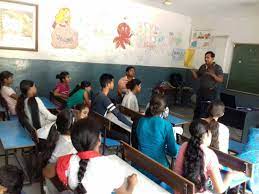
A former health sector professional, Raghavan became part of the Sangathan, with so many others from different communities and walks of life, to strengthen civic voices against growing criminalisation of politics.
For them, as for so many others, the 1984 Sikh genocide (“Not riots,” Raghavan insists, “Riots imply a spontaneous outburst of anger, 1984 was a planned, state-sponsored attack on a particular community.”) was a macabre milestone in normalising state violence.
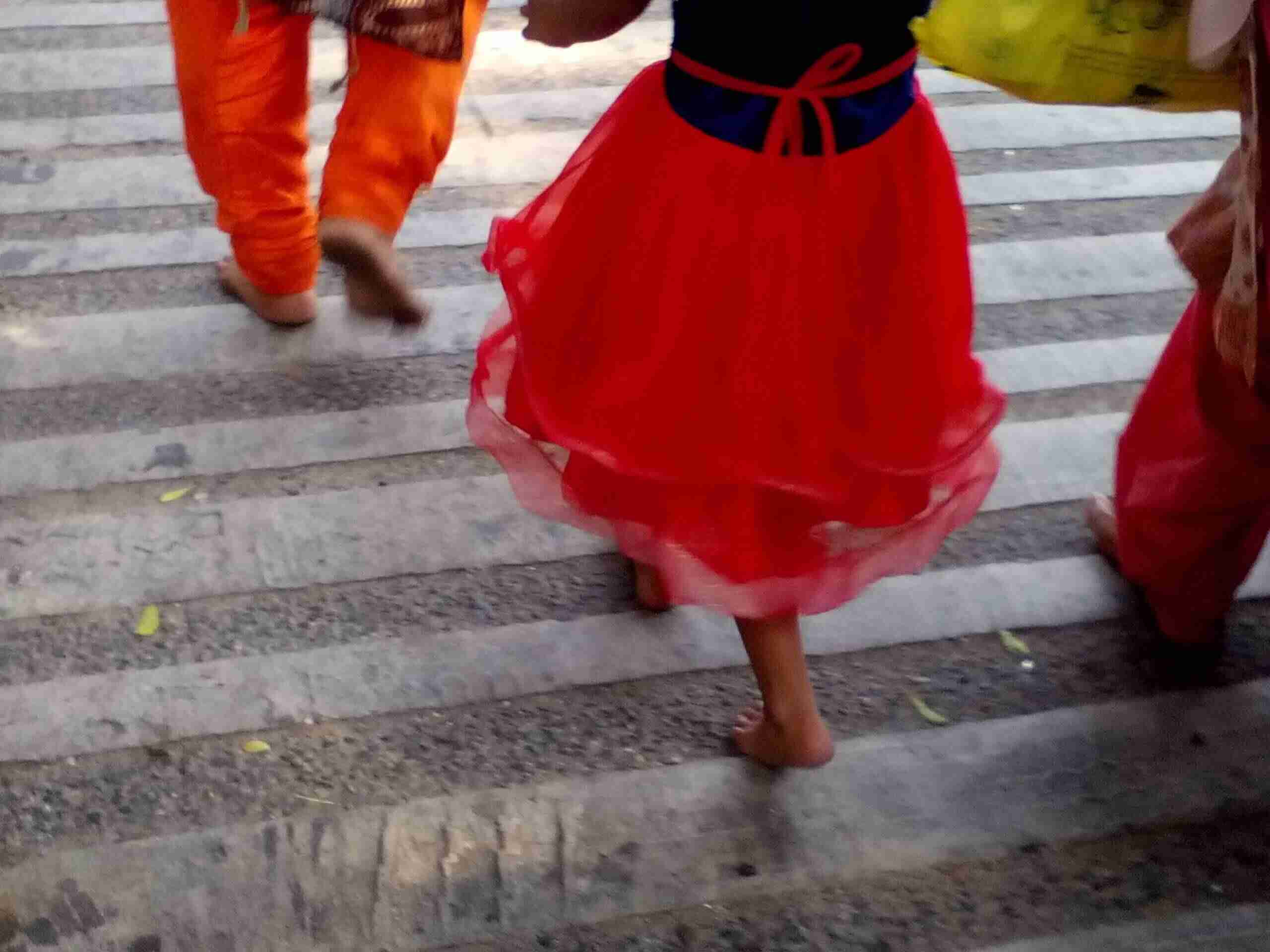
(Walking barefoot from the Gurudwara to Jantar Mantar)
“Look at the pattern since then – Babri Masjid, Gujarat, Hashimpur, the growing power of lynch mobs ….. these can happen only with state support. If we remain mute witnesses to such actions then we too become complicit, we must together raise our voices against all state-sponsored crimes,” thundered Siraj Talib, State Executive, Welfare Party of India.
“There is no doubt that communal violence has become a convenient tool in the hands of all political parties as a diversion from real, serious issues of unemployment, education, health. We must stand united to fight this toxic environment,” said Poonam from Purogami Mahila Sangathan.
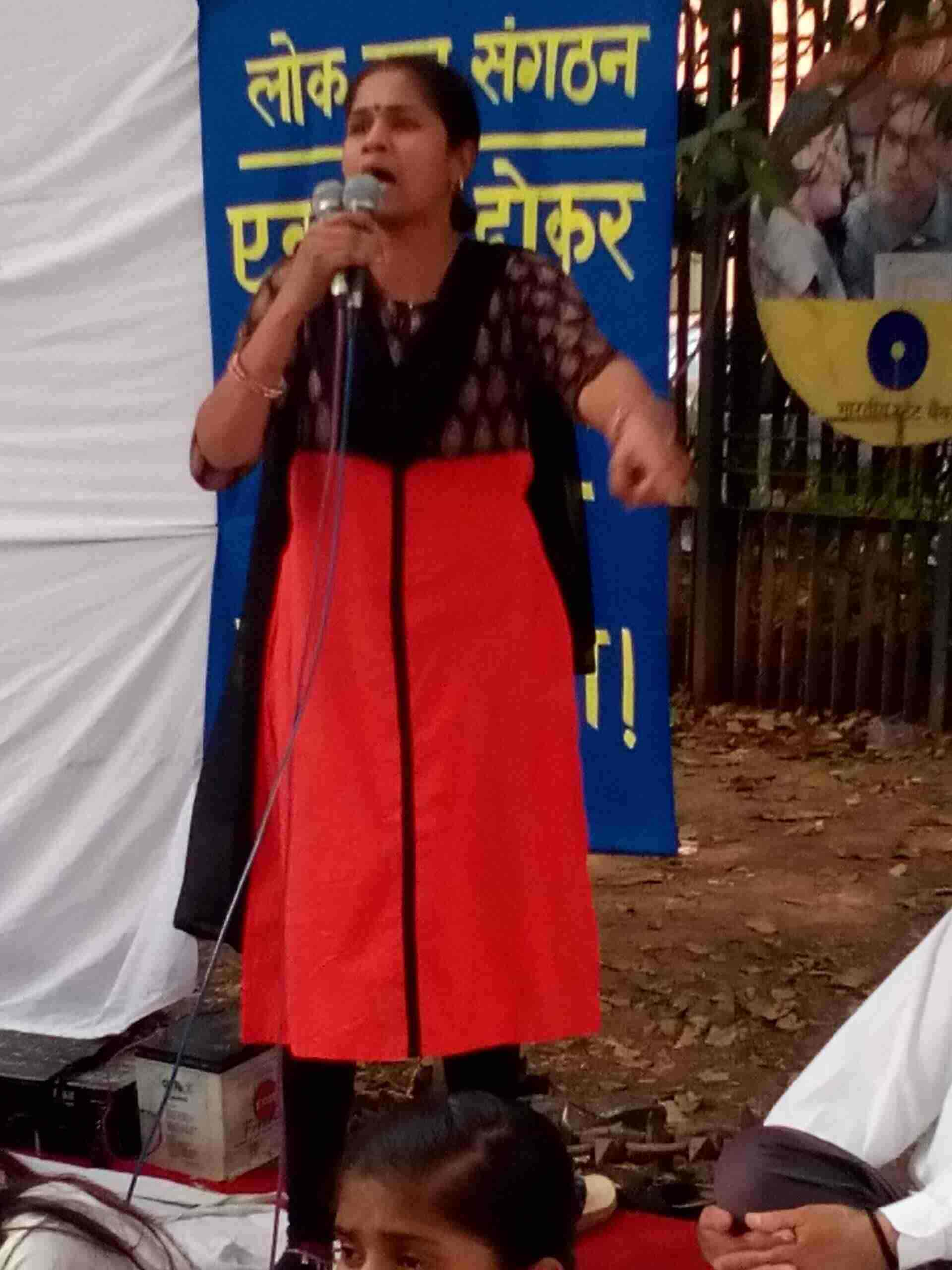
(Poonam, Purogami Mahila Sangathan)
There is no doubt that the brutal attack on Sikh men, women and children after the then Prime Minister Indira Gandhi’s assassination by her Sikh security guards in Delhi on October 31, 1984, was unprecedented in its ferocity in the Capital. While official government records show less than 3,000 Sikh people died across the country, independent sources put that number just for Delhi, with the rest of the country suffering another 5,000 deaths.
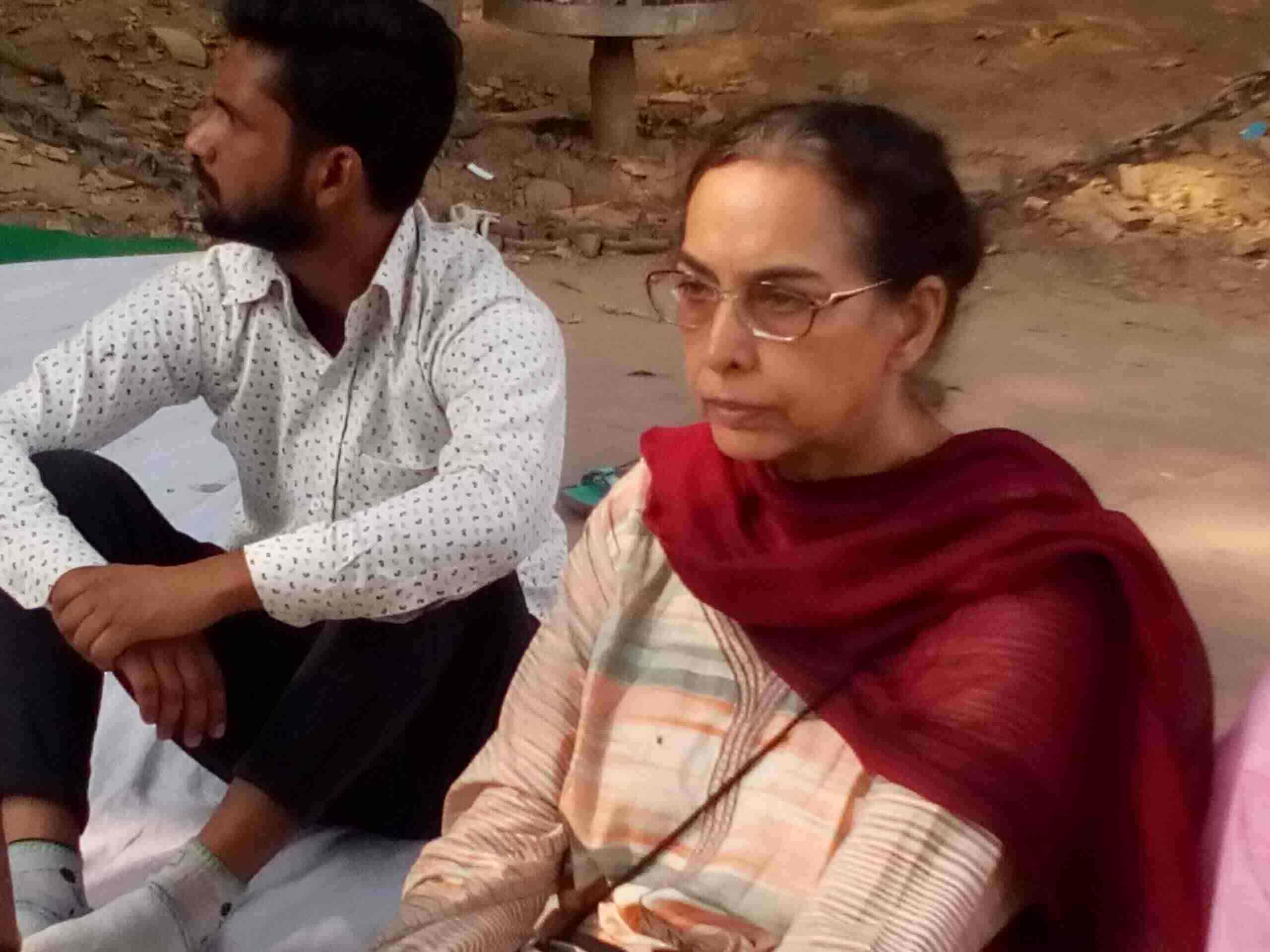
(Arpana Caur, Painter, extending support)
“The masterminds behind that planned attack are still at large, and that’s because it does not suit any political party to set a clear precedent of justice because they could then be implicated, but we have to demand that all the 1984 cases are properly dealt with,” was the rallying cry of another group, “We will not forget,” said the women, as they walked barefoot down to Jantar Mantar from Rakabganj Gurudwara.
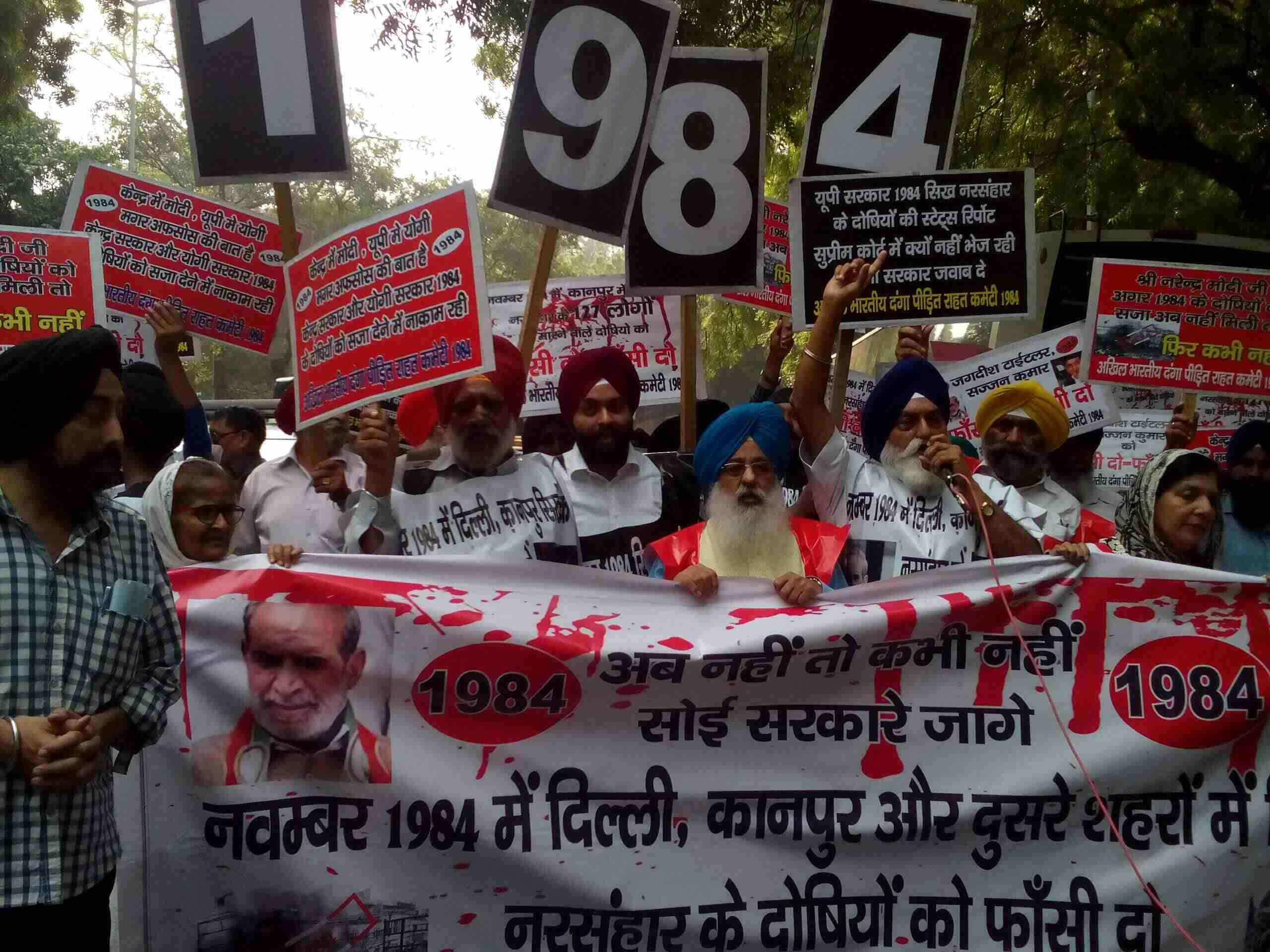
(Demonstrators walking from Rakabganj Gurudwara to Jantar Mantar)
The importance of these passionate sentiments was echoed by Fareed Zakaria in his recent Program GPS on CNN when he quoted the following lines of Martin Niemöller, German Lutheran pastor and theologian (1892-1984):
First they came for the socialists, and I did not speak out—
Because I was not a socialist.
Then they came for the trade unionists, and I did not speak out—
Because I was not a trade unionist.
Then they came for the Jews, and I did not speak out—
Because I was not a Jew.
Then they came for me—and there was no one left to speak for me.
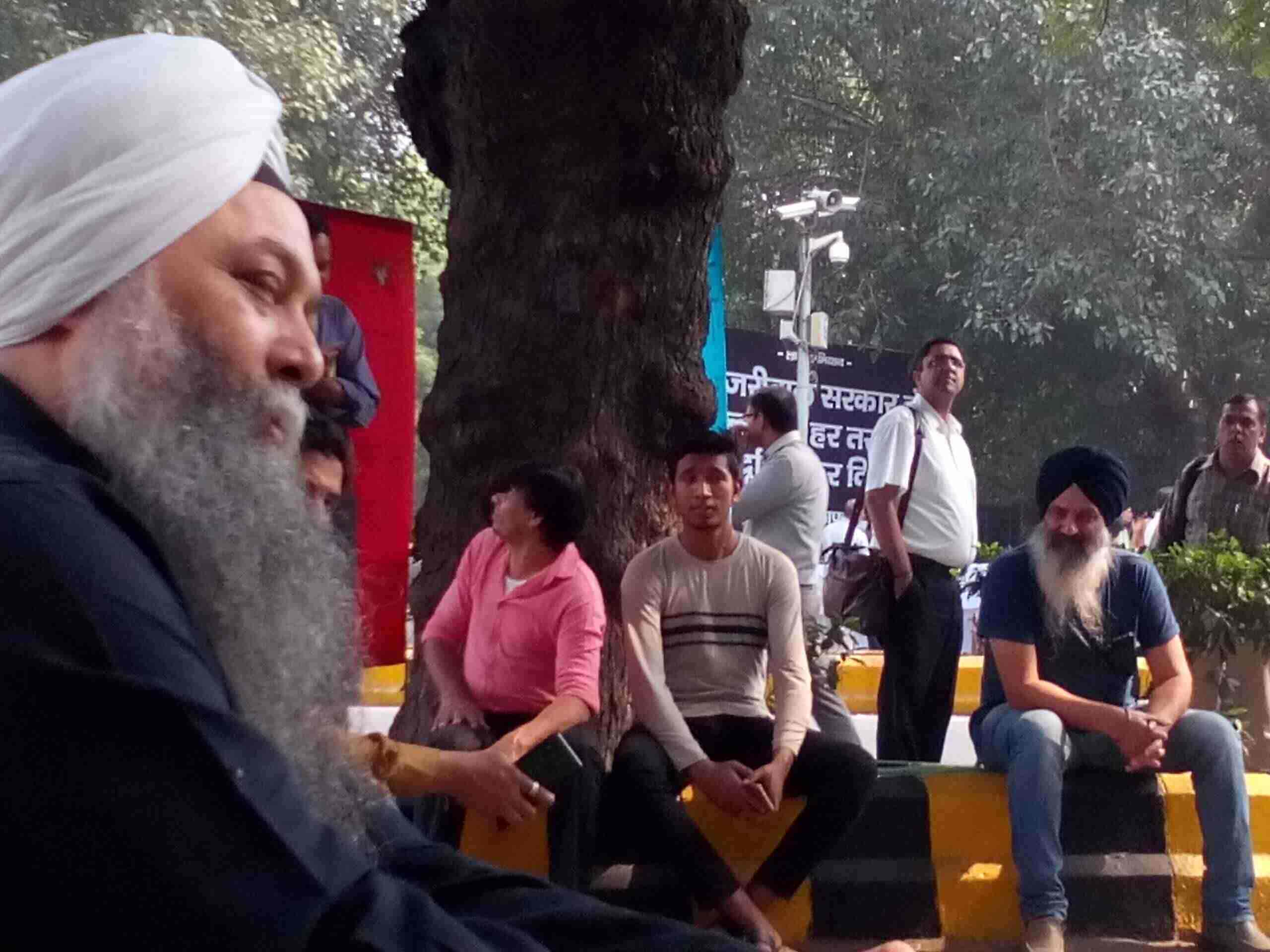
(Supporters at the demonstration)
